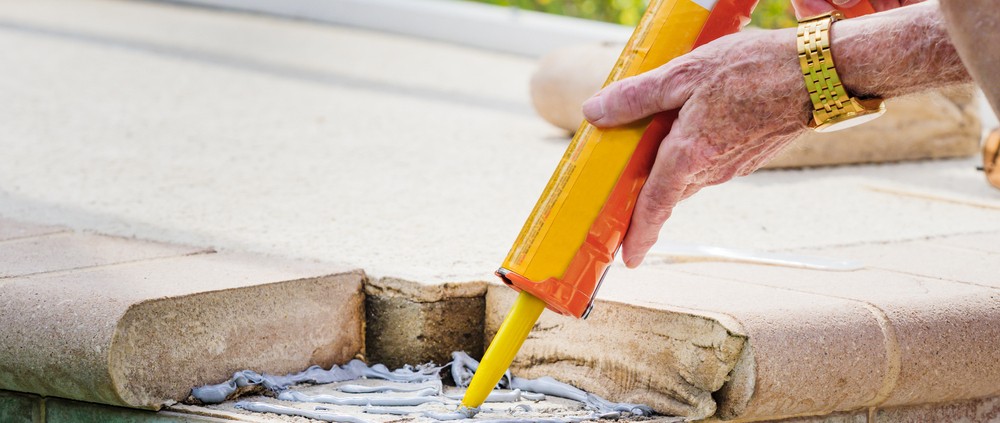Solving the Puzzle: Can Pavers Be Glued to Concrete?
In the world of outdoor design and landscaping, the debate over whether pavers can be glued to concrete is a common one. People often wonder if it is possible to create a solid and long-lasting installation by gluing pavers to a concrete surface.
In this blog, we will explore the concept of gluing pavers to concrete, discuss the benefits and drawbacks, and provide insight into the process, adhesive options, and maintenance of such installations. By the end of this article, you will have a better understanding of whether gluing pavers to concrete is a viable solution for your outdoor space.
Understanding the concept of gluing pavers to concrete
Gluing pavers to concrete involves using adhesive glue to attach the pavers securely to a concrete surface. This method is commonly used for areas that require strong adhesion, such as driveways and pool surrounds. The adhesive glue forms a bond between the pavers and the concrete, creating a solid and long-lasting installation. By understanding the concept of gluing pavers to concrete, homeowners can explore this alternative option for their outdoor spaces.
Clarifying the benefits and drawbacks
Gluing pavers to concrete offers several benefits, including cost savings by avoiding the need for labor-intensive removal of the concrete surface. It also provides a stable base for the pavers, ensuring durability and longevity.
However, there are some drawbacks to consider. Gluing pavers to concrete can limit flexibility in design changes and make repairs more challenging. Additionally, if not properly installed, the adhesive may fail, causing the pavers to become loose, or may result to uneven surfaces. It is important to weigh these factors before deciding to glue pavers over concrete.
The Process of Gluing Pavers to Concrete
The process of gluing pavers to concrete involves a few key steps. First, the concrete surface needs to be thoroughly cleaned and dried. Next, the adhesive glue is applied to the concrete in a consistent layer. The pavers are then carefully placed onto the glue, ensuring proper alignment and spacing. Finally, the pavers are pressed down firmly, and any excess glue is cleaned off. The glued pavers should be given ample time to fully cure and bond with the concrete before being used.
Preparation steps before gluing
Before gluing the pavers to the concrete, it is important to properly prepare the surface. This includes cleaning the concrete thoroughly, removing any debris, dirt, or oil. The concrete surface should also be dry before applying the adhesive. Additionally, it is recommended to lightly score or roughen the surface to promote better adhesion. Taking these preparation steps ensures a smooth and successful installation of the pavers on the concrete.
Applying the adhesive and setting the pavers securely
Once the concrete surface is properly prepared, the adhesive can be applied. Using a notched trowel, apply a layer of construction adhesive onto the concrete slab. Make sure to choose a construction adhesive suitable for bonding pavers to concrete. Then, carefully place the pavers on top of the adhesive, pressing them down firmly to ensure a secure bond.
Allow the adhesive to cure according to the manufacturer’s instructions before walking or placing heavy objects on the pavers. This will ensure that the pavers are securely set and will not shift or loosen over time.
Choosing the Right Adhesive for Pavers on Concrete
When choosing an adhesive for pavers over concrete, it is important to select a product specifically designed for this application. One option to consider is Landscape Block Adhesive, which has been shown to provide good results.
However, there are other adhesive options available on the market as well. Factors to consider when selecting an adhesive include its strength, ease of application, and compatibility with the pavers and concrete surface.
Types of adhesives suitable for this application
There are several types of adhesives that are suitable for gluing pavers to concrete. Some common options include construction adhesives, landscape block adhesives, and concrete-specific adhesives.
These adhesives are designed to provide a strong and durable bond between the pavers and the concrete surface. It is important to choose an adhesive that is compatible with both the pavers and the concrete to ensure a successful installation.
Factors to consider when selecting the adhesive
When selecting an adhesive for gluing pavers to concrete, there are several factors to consider. These include the type of pavers being used, the climate and weather conditions in the area, the durability and longevity desired, and the specific application and installation method. It is important to choose an adhesive that is compatible with both the pavers and the concrete to ensure a strong and lasting bond.
Pros and Cons of Gluing Pavers to Concrete
Gluing pavers over concrete can offer several benefits, such as stability and durability, as the adhesive creates a strong bond. It is also a cost-effective option compared to ripping up existing concrete. However, there are some limitations to consider. Gluing pavers restricts flexibility for future changes and repairs, and it may not be suitable for areas with significant moisture or freeze-thaw cycles. Additionally, the adhesive may degrade over time, requiring maintenance or replacement.
Advantages of using adhesive for pavers
Using adhesive for pavers offers several advantages. Firstly, it creates a strong bond between the pavers and the concrete, ensuring stability and durability. Additionally, gluing pavers to concrete is a cost-effective option compared to ripping up existing concrete. It also provides a more seamless and visually appealing finish, enhancing the aesthetic of outdoor spaces. Overall, adhesive bonding is a reliable method for installing pavers on concrete surfaces.
Potential challenges and limitations
While gluing pavers to concrete has its advantages, there are also potential challenges and limitations to consider. One challenge is the difficulty of removing the pavers once they are glued down, making it less flexible and adjustable compared to other installation methods. Additionally, improper surface preparation or application of adhesive can lead to poor adhesion and stability. It is crucial to carefully follow the manufacturer’s instructions to ensure a successful and long-lasting installation.
Maintenance and Longevity of Pavers Glued to Concrete
Pavers glued to concrete require regular maintenance to ensure their longevity. It is important to regularly inspect the adhesive bond and repair any cracks or damage promptly. Cleaning the pavers regularly and reapplying a protective sealant can also help extend their lifespan.
Proper drainage and avoiding heavy loads can further prevent potential issues. With proper care, pavers glued to concrete can provide a durable and long-lasting outdoor surface.
Tips for maintaining pavers secured with adhesive
Regular maintenance is crucial for ensuring the longevity of pavers secured with adhesive. Inspect the adhesive bond regularly, and repair any cracks or damage promptly. Clean the pavers regularly to remove dirt and debris, and reapply a protective sealant to prevent staining and moisture damage.
Avoid using harsh chemicals that could deteriorate the adhesive, and regularly sweep or rinse away any debris or standing water. Proper care and maintenance will help preserve the integrity of the pavers and extend their lifespan.
Evaluating the durability and lifespan of this installation method
When evaluating the durability and lifespan of pavers glued to concrete, it is important to consider several factors. Properly installed and maintained pavers can have a long lifespan, with some lasting for decades.
However, the durability of the adhesive bond and the integrity of the pavers can be affected by factors such as weather conditions, traffic, and the quality of the adhesive used. Regular maintenance and repairs are essential to ensure the longevity of the installation.
Final thoughts | Can Pavers Be Glued to Concrete
Many misconceptions surround the concept of gluing pavers to concrete. One common misconception is that interlocking concrete pavers are not long-lasting. However, they can actually outlast solid concrete driveways. It is important to address these misconceptions and provide accurate information to help homeowners make informed decisions about their outdoor spaces.
Gluing pavers to concrete can be a viable option for transforming a plain concrete surface into an eye-catching outdoor living space. The process involves proper preparation and the use of the right adhesive. With the right adhesive, proper installation techniques, and maintenance, pavers can be securely bonded to the concrete, providing durability and longevity, offering benefits such as enhanced aesthetics and durability.
However, it is important to consider factors such as weather conditions and regular maintenance for long-lasting results. Overall, gluing pavers to concrete can create an attractive and functional outdoor space.
Colonial Construction offers professional paver installation services in Jacksonville, FL and the surrounding area, ensuring a high-quality result that will enhance the aesthetic appeal and functionality of your outdoor space. Contact us today for a consultation!






